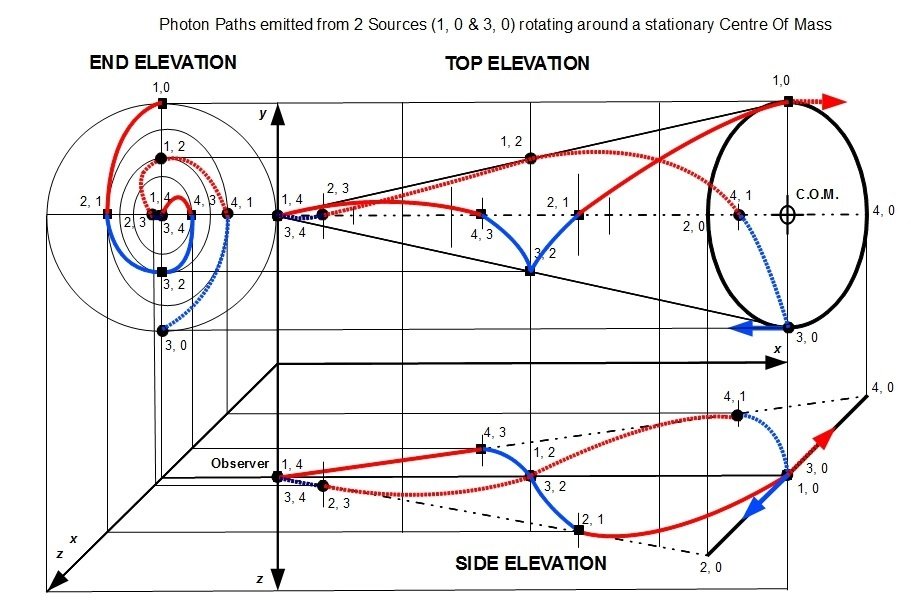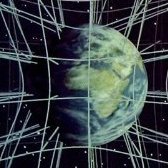Leaderboard
Popular Content
Showing content with the highest reputation on 01/01/23 in all areas
-
The first thing to keep in mind is that while 90% of the mass of our galaxy is estimated to be dark matter, This includes the entire DM halo or a spherical volume that extends well beyond the visible matter disk of the galaxy. Once you spread it's mass throughout that huge volume, you end up with an extremely low density. The other thing is that even though, if you were to take the total mass of the solar system and spread it out evenly throughout a spherical volume enclosed by Neptune's orbit, you would end up with a overall density that would put a man-made vacuum to shame, it would still be many many times denser on average then, say, a 10 parsec radius sphere in our part of the galaxy. And that 10 parsec sphere would, still contain more regular matter than DM. It is estimated that the total mass of DM in the Solar system is equivalent to that of 1 small asteroid. Even a 10 fold increase in this density would be insignificant gravitationally to the Solar system. If this is the case, then how is it that DM can cause discrepancies in the rotation curves or galaxies? The visible matter in galaxies like the Milky Way is concentrated in its central bulge and thin disk. So if you calculate orbits based on visible matter, you need to take this distribution into account. DM however, is spread out spherically, and the vast majority is "above" and "below" the galactic disk. And any mass closer to the center of the galaxy than a given star, has a gravitational effect on that star's orbit around the galaxy. So, for example, if we take that 1 small asteroid's amount of mass spread out throughout the Solar system, and apply that density to the volume of the sphere contained within the Sun's galactic orbit, you get a total mass of DM that is a significant fraction of the total mass of the visible mass of the Milky way; enough to have a noticeable effect on the Sun's galactic orbit. The upshot is that star systems like the Solar system are "matter rich dense spots", which makes their internal orbital mechanics essentially immune to the kind of DM density variation likely to occur.3 points
-
"Freshwater mussels are one of the most endangered groups of animals on the planet, with 47% either extinct or threatened with extinction. Yet we hear almost nothing about the extinction crisis they face." "In 2019, the death of hundreds of thousands of pheasantshell mussels in the Clinch River in Tennessee, U.S. may have been caused by a virus, and prolonged droughts have killed mussels en masse throughout the U.S. and Australia." https://phys.org/news/2022-01-century-rivers-freshwater-mussels-dying.html The foundations for our food webs (and life as we know it) are usually small and overlooked organisms, but we need them.1 point
-
A stream of in transit photons? Modelling the locations of in transit photons emitted from rotating sources Above is a link to a thread in an Against The Mainstream (ATM) area on another forum. I was penalised twice for posting what was regarded as ATM by moderators so I posted there and the last post by the Administrator was as follows.1 point
-
As you stated that's to the perspective of the observer at infinity. The infalling observer sees no difference. The flipping of the space vs time marks a point where the mathematics breaks down into a mathematical singularity condition.1 point
-
I've always been curious as to why so many have issues with probability. If you have a system or state where you have more than one possible outcome it's only natural to model all possible outcomes and give the probability of those possible outcomes. This is true in classical as well as quantum mechanics. So why is probability in quantum mechanics an issue?1 point
-
Here is a long list: List of invasive species in North America - Wikipedia1 point
-
You really don’t need to bang your shinbone on a stool that’s not in the way. The answer is simply that it measures the fact that a period of time has passed. This is in no way philosophically problematic, precisely because we don’t equate “time” with any specific clock mechanism. It’s only if you try to redefine physical time as “movement”, as you suggest, that you end up with all sorts of philosophical, mathematical, and physical issues and tautologies, because that’s simply not a good model of the world around us - there are plenty of specific examples of systems evolving without any “movement”. The crucial point here is that this is true for all clocks, entirely irrespective of what their internal mechanisms actually are. A digital wrist watch, an atomic clock, a decaying elementary particle, or the flipping of spins all show the same fact that time passes (ie that systems evolve and age into the future), and that this is entirely separate from any specific mechanism used to measure it. It’s as true for periodic motion as it is for motionless systems. You can see this even more clearly when you compare clocks by placing them at different points within a gravitational field - gravitational time dilation affects all clocks equally, irrespective of their internal mechanisms (or lack thereof). A vastly more interesting and pertinent question is whether - and in what sense - time (and also space, for that matter) is fundamental to the universe, or whether it is emergent from something more fundamental that is not in itself spatio-temporal in nature. This is still an open question, and very much subject to debate within the physics (and philosophy) community.1 point
-
1 point
-
I think we're living in an age of confusion and that this confusion must have been pretty much unavoidable all along. Copenhagen's interpretation works like a dream for anything that doesn't deeply involve questions of very early cosmology, quantum gravity, or vacuum energy. Little surprise there: Where does the universe come from? Why is there something rather than nothing? What is time? You can't get more essential than that. I also think there's the social factor that not many high-profile theorists since the likes of Einstein and Schrödinger have been attracted to this problem nearly compellingly enough. That's probably because so far there hasn't been much at stake from the point of view of solving fundamental problems --or getting a university tenure. This particular factor, I feel, could be about to change in the decades to come. As to interpretations, one possibility is that, wherever the description of physical systems & processes hinges on QM, we've finally hit a fundamental logical obstacle which could have to do with the completeness vs consistency of mathematics itself, which we know by now to be an actual issue. The reason being: Why not? If that's the case, we will have to give up on matters of interpretation. My personal feeling is that we haven't taken the question seriously enough. And my battlecry --or baby cry, who knows--, is that we must change the attitude to that of the cartographer: Our quantum-state variables, and space-time and internal-gauge, spin variables, etc. would be but a parametrisation of physics that simply cannot do the job of explaining everything at every level. At some point we have to drop them, propose new variables, and explicitly build formulae connecting the different domains. This is very similar to what a cartographer who wants to faithfully describe Antarctica must do if she's been working only with the Mercator projection previously. In a way that's what we do all the time. As to my own interpretation, I think there must be some kind of a non-linear dynamics of solitons, kinks and domain walls, etc, going on in the gauge degrees of freedom, that's not completely inconsequencial, complex enough that it's gone unnoticed for all these years as a possibility, and can perhaps under suitable ancillary hypothesis be statistically related with a De Broglie-Bohm model as an approximation. So in that sense I think the De Broglie Bohm interpretation, although it cannot be the whole story, does capture something important as a crude approximation. Sorry for the split infinitive, and for so many words for what basically is my two cents.1 point
-
The first stop: I think these limits are wrong.1 point
-
1 point
-
You’re forgetting economies of scale. It’s not the individual case of a sore loser who refuses to simply wear a nicotine patch or chew some gum during the weekend of their UK visit that matters here. I’m sure all 3 of them feel quite righteous and smug in their refusal to visit UK due to cigarette costs and policies, but they’re not even a nanoblip on the annual financial radar relative to the additive benefits to their economy from removing additional carcinogens from the air over the entire whole country and inhaled by all her subjects.1 point
-
You have perfectly described my relationship to home renovation. Some gets done, but often only when I've found a workaround for the drudgery part (e. g. wood strips for sheetrock joints instead of plastering and sanding - "rustic charm"). A lot of human creativity has been driven by the desire to avoid drudgery. I second @iNow on walking. A person who sets out on a walk returns a saner and smarter person. (unless they walked behind too many buses inhaling deeply)1 point
-
Another answer is the attitude of my father-in-law, in his words, "Do it and it will be done."1 point
-
Yes, mussels are important in cleaning waterways, both in fresh and salt water. I found a video demonstrating how they filter clean their habitats. The biggest problem they face right now is water pollution and habitat destruction.1 point
-
The price of funerals has gone up a lot lately, adding to the general rise in the cost of living.1 point
-
Incorporate walking into your day. It does amazing things for our minds. Also, the world is weird right now and humans are experiencing rather persistent traumas together. You’re not the only one seeking emotional comfort and escapism as a path to reaching it. In other words, be kind and patient with yourself. Kicking yourself when you’re down won’t help you to stand back up any faster.1 point
-
And yet earlier you claimed that religion led to civilisation. You made no distinction there. Historically, beliefs and actions went hand in hand.1 point
-
-1 points













